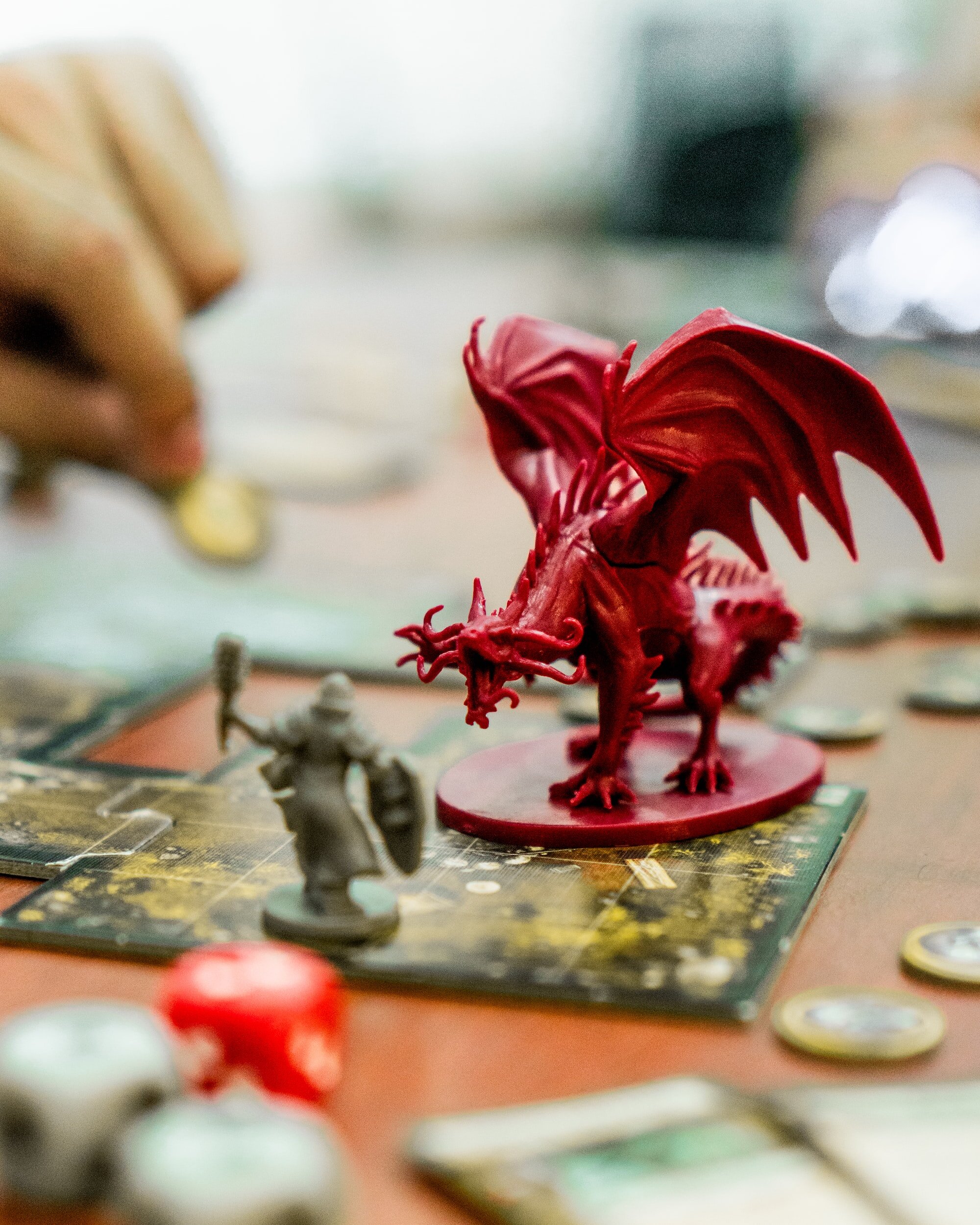Dungeons & Dragons as a tool for OCD and Anxiety Treatment
At Kairos Wellness Collective, we use creative and fun interventions to work with OCD and anxiety disorders.
One of our most popular group interventions is Dungeons and Dragons (D&D).
Here is how this engaging game can support therapy:
D&D ERP:
Exposure Response Prevention is a highly effective cognitive-behavioral therapy technique for OCD. In D&D, the game master can design scenarios that expose players to situations that trigger their OCD-related fears or obsessions. Through role-playing, players can practice facing and resisting their compulsive urges or anxiety-provoking thoughts in a safe and controlled environment. In other words, imaginal exposures that are way more engaging than writing a script!
Narrative Therapy:
D&D offers an immersive storytelling experience. By creating and developing a character within the game, individuals can explore different aspects of themselves and their relationship with OCD. They can work with their therapist to incorporate themes of personal growth, resilience, and overcoming challenges into their character's journey, mirroring their own therapeutic progress. OCD healing sometimes involves a need to step back and evaluate how the individual’s values are colliding with the OCD’s values. D&D can provide an engaging metaphoric world to explore your child’s intrinsic motivation to get better.
Social Interaction and Support:
D&D is a collaborative game that involves teamwork and social interaction. For individuals with OCD, who may experience social isolation or difficulty in interpersonal relationships, playing D&D in a supportive group setting can provide opportunities to develop social skills, build relationships, and feel accepted and understood by others. The D&D community is socially inclusive, and famously welcoming of neurodiversity.
Cognitive Flexibility:
OCD often involves rigid thinking patterns and a need for control. D&D requires players to think flexibly, adapt to unpredictable situations, and make decisions based on the game's ever-evolving narrative. Engaging in the game can promote cognitive flexibility and help individuals practice letting go of excessive need for control.
Symbolic Representation:
D&D allows individuals to symbolically represent their fears, anxieties, or intrusive thoughts through the game's fantasy setting. By externalizing these internal experiences, players can gain a different perspective and create distance from their OCD symptoms, fostering a sense of empowerment and control over their condition.
Goal Setting and Problem-Solving:
D&D quests and scenarios involve setting goals and strategizing to overcome obstacles. This can translate into real-life goal-setting and problem-solving skills. Individuals can learn to apply the same problem-solving approach and perseverance to tackling challenges related to their OCD.
It's important to note that using D&D as a therapeutic tool for OCD should be done in collaboration with a trained mental health professional. The therapist can guide the individual through the game, facilitate discussions, and help draw connections between in-game experiences and real-life OCD challenges. They can also ensure that the therapeutic goals align with the individual's specific treatment needs.
Additionally, it's crucial to create a supportive and inclusive gaming environment, where all players feel comfortable and respected. Sensitivity should be exercised when incorporating OCD-related themes, ensuring that it is done in a responsible and ethical manner, prioritizing the individual's well-being and therapeutic goals.
Our team prides ourselves on being responsive and available to parents’ needs, as many of us have the personal experience of being overwhelmed with our own child’s OCD treatment. We also offer virtual parenting coaching, as needed, for OCD parents around the world!
Please contact Kairos Wellness Collective today to learn more about options for anxiety treatment and to get started on your journey to wellness.

